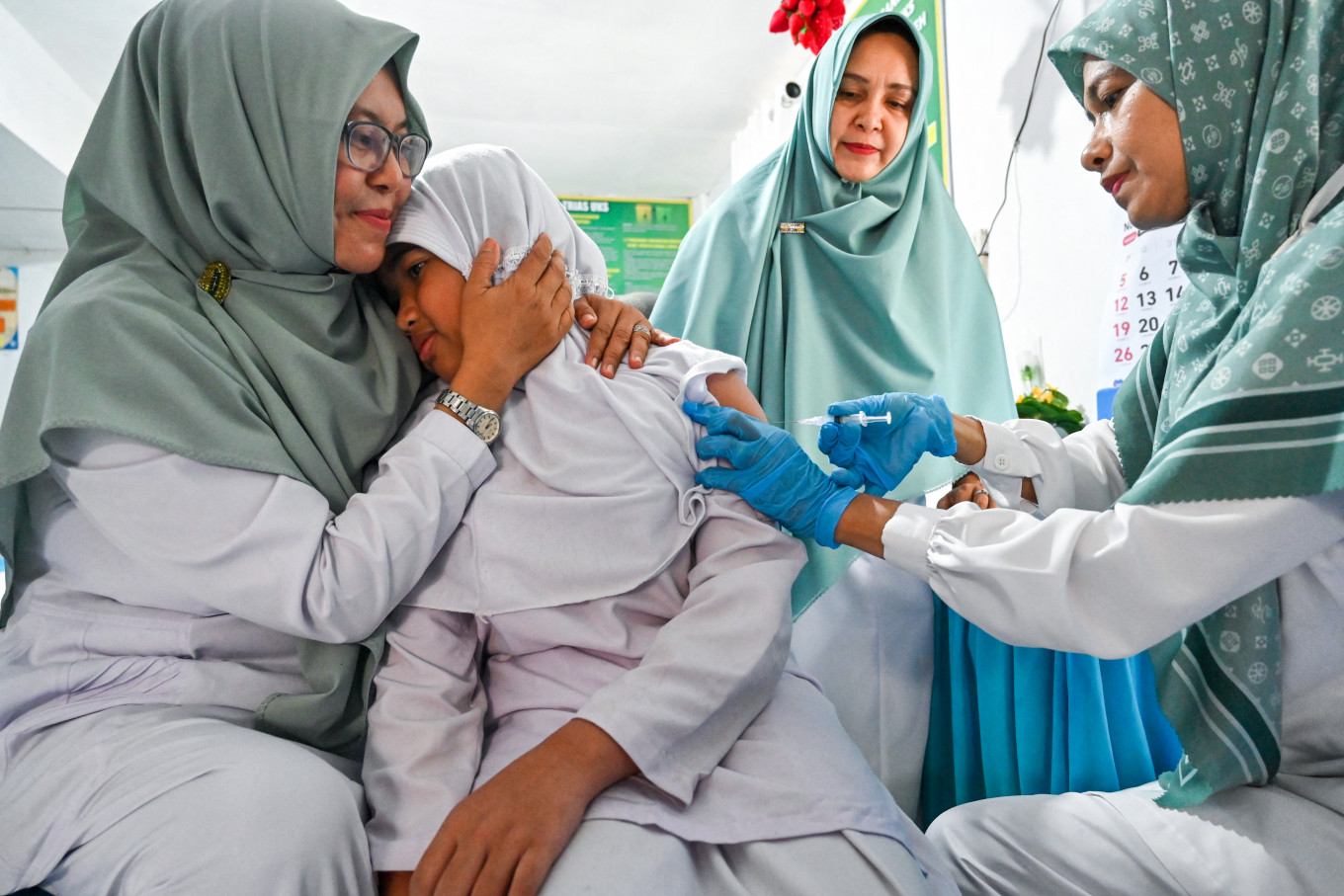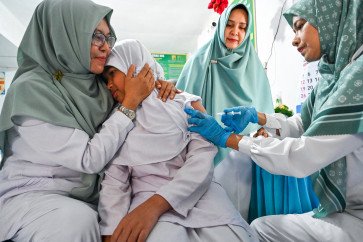Popular Reads
Top Results
Can't find what you're looking for?
View all search resultsPopular Reads
Top Results
Can't find what you're looking for?
View all search resultsWhat Trump’s win means for Indonesia’s global health strategy
With his return to power, the world braces for another potential upheaval in global health governance and financing.
Change text size
Gift Premium Articles
to Anyone
D
onald Trump is set to return to the White House following the 2024 United States presidential election, a development that has sent shockwaves through the global health community. His previous tenure (2017–2021) was marked by a stark retreat from multilateralism, epitomized by his attempt to withdraw the US from the World Health Organization (WHO), propose budget cuts to the President’s Emergency Plan for AIDS Relief (PEPFAR) and reduce financial contributions to global health initiatives. With his return to power, the world braces for another potential upheaval in global health governance and financing.
As Indonesia rises on the global health stage through initiatives like the Pandemic Fund, the Global Fund and its role in shaping the WHO’s Group of Equity, this article seeks to discuss how Trump’s victory could impact Indonesia’s emerging role in global health and highlights the need for Indonesia to recalibrate its global health strategy.
The stalemate in the Pandemic Agreement negotiations reflects the growing fractures in global health governance, a divide that could deepen under Trump’s renewed leadership. The initial optimism surrounding the Pandemic Agreement, a potential global treaty on pandemic prevention, preparedness and response, was shattered when the Intergovernmental Negotiating Body failed to reach a consensus before the 77th World Health Assembly in 2024. Negotiations were extended to 2025, revealing entrenched divisions between two blocs: high-income countries advocating for producer-friendly terms, and the Group of Equity, composed of low- and middle-income countries, pushing for equitable access to medical countermeasures.
This deadlock exposes how geopolitical rivalries and competing national interests continue to undermine multilateralism. The Pandemic Agreement’s most contentious provisions, such as technology transfers and pathogen access and benefit sharing, highlight the reluctance of wealthier nations to commit to binding obligations. Instead, terms like “mutually agreed” clauses, championed by many high-income countries, mirror Trump-era policies that prioritized national interests over collective responsibility, as seen in his attempted withdrawal from the WHO and reluctance to participate in global initiatives like COVAX.
Trump’s return to power threatens to exacerbate these dynamics. His well-documented disdain for multilateral agreements and preference for isolationist policies could derail the Pandemic Agreement entirely. Under Trump’s leadership, the US is likely to resist binding commitments on technology transfers and equitable benefit-sharing, further emboldening other high-income countries to prioritize sovereignty over solidarity. This would replicate the failures of the TRIPS waiver during COVID-19, where intellectual property protections hindered global vaccine access.
Moreover, the sustainability of global health financing could be at risk with Trump’s return to office. As mentioned earlier, he sought to withdraw the US from the WHO and proposed budget cuts to critical programs such as PEPFAR, jeopardizing the stability of global health financing during his previous tenure. Given that the US is a major contributor to global health funds, such moves could leave critical financing mechanisms underfunded.
Low and middle-income countries, which rely on international support for health development, would be most affected. The absence of a robust surge in financing for global health emergencies, coupled with fragmented and donor-driven development assistance for health systems, already places these nations in a precarious position. Trump’s policies could exacerbate these vulnerabilities, further widening the gap in equitable access to health resources. This shift toward isolationism risks stalling progress on emerging initiatives like the Pandemic Fund, which still faces challenges in securing sustainable financing.



















